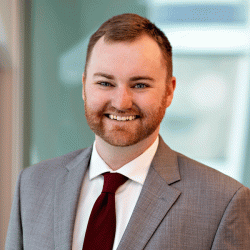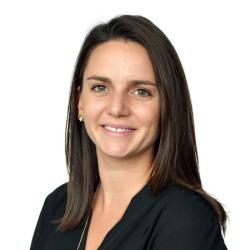Master of Science in Accounting Program in High Demand
November 17, 2021

The Covid-19 pandemic did not dampen interest in Isenberg’s professional graduate accounting degree program, with enrollment in the Master of Science in Accounting program recently passing 300 students for the first time. To serve this growing population, the program recently added a new dedicated academic advisor. Matt Connolly came onboard this August joining Priscilla Mahar as a Graduate Programs Academic Advisor specifically assigned to MS in Accounting students. Matt’s background includes working in higher education in various roles, most recently with Boston University.
The program’s growth since 2015, when only 40 students joined, stems in large part from the addition in 2017 of a groundbreaking transition program—an intensive four-course series created to give non-business majors and professionals a path of entry into the master’s program. The transitions track became an official track in the program in summer 2020. At the present time, approximately 44% of new applications are for this track.
The popularity of the transitions track during the past year might also reflect the career reassessment that many professionals have taken since the pandemic disrupted their day-to-day work lives, particularly because the Isenberg MS in Accounting program can be completed either on campus or online, and it fulfills the Massachusetts educational requirements for CPA certification. Students enrolling in the Transitions Track have on average 8 years of work experience and come from a wide range of backgrounds including social work, education, criminal justice and economics.
FOCUS AREAS IN THE MS IN ACCOUNTING

A new focus in data analytics has been proposed for early 2022, made possible by the synergies between two of Isenberg’s specialty masters programs: the MS in Business Analytics and the MS in Accounting. Coursework will focus on advanced accounting and data analytics coursework. Data analysis skills are in high-demand making it critical for accounting professionals to keep up with this evolving need.
Two specialty focuses already exist in the MS in Accounting program. The forensic accounting focus includes elective courses in fraud investigation, auditing, and complex decision-making that support accountants in tracking patterns of financial transactions and identifying discrepancies. Courses are taught by highly experienced practitioners and researchers in the field of forensic accounting.
Graduate students can also specialize in taxation, a focus area that includes courses in partnerships, research, and state and local taxation. The taxation focus was developed in response to industry demand, after conversations with partners in the region’s leading accounting firms.